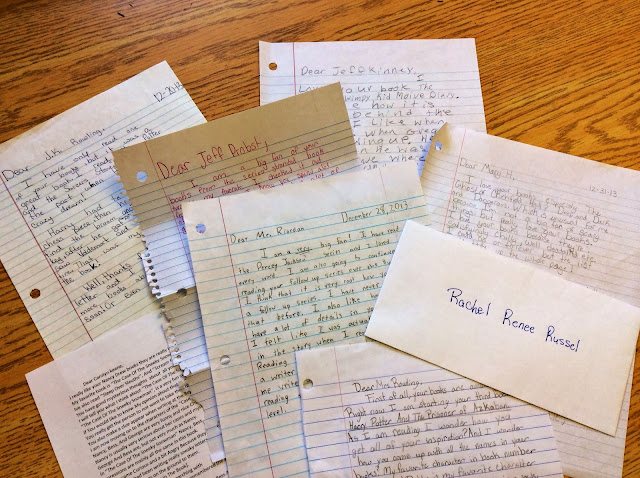The beginning of the year always means it's book award season. In February, we were able to purchase 7 different award-winning titles for our library. Flora & Ulysses is the Newberry Award winner for 2014 and the others are Kentucky Bluegrass Nominees that we'll be voting on later this Spring. All of these books are coveted reads, so last week we held a Book Raffle to see who would have the 'first read' of these soon-to-be classics!
Every student received 1 ticket (scrap of paper) to enter into the raffle. Then, students who had no missing assignments were awarded a second ticket. I placed a plastic cup in front of each book. I set the timer on the board and students had 3ish minutes to decide which book they wanted to 'win'.
After all 3 classes have had the opportunity to enter the Book Raffle, I pulled names for each of the books (dramatically, of course) and delivered their new treasures. :) The students who 'won' each book have a week to return the read book to me, so his/her friends have the chance to read the book, as well!
Book Raffles keep everything a little more fair and help build an excitement for reading. We're always grateful to add books to our collection and share our favorites with friends! :)


.JPG)













.JPG)
.JPG)
.JPG)
.JPG)
.JPG)


.JPG)








.JPG)


.JPG)
.JPG)


